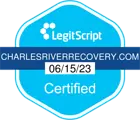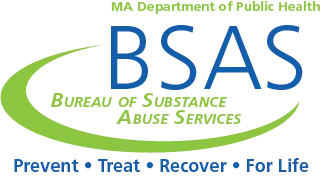Why Detoxification Is Essential for Long-Lasting Recovery From Drug Addiction
Detoxification from drugs can be dangerous. However, if detox is medically assisted, the withdrawal symptoms can be reduced significantly in a safe environment.
Detoxification clears your body of drugs that you have consumed. The medication administered during medically assisted detox helps you to feel comfortable as the drugs leave your system and manage your withdrawal symptoms safely. The detox experience will vary from one person to another.
How Long Does Detox Take?
Quitting a drug all at once, known as “cold turkey,” can be unpleasant and dangerous. Most experts prefer tapering off the drug to let the client withdraw from it gradually.
It can take anywhere from days to months for withdrawal symptoms to fade away completely. The length of detox depends on factors such as:
- Duration of the addiction
- Drug(s) the person was addicted to
- Amount of the substance they consumed
- Family history of substance abuse
- Method of substance abuse
- Underlying medical conditions
If you’re struggling with a substance use disorder (SUD), you need to speak with someone who can help you get the assistance you need. Each case is unique, but every individual must be willing to make long-term adjustments to avoid a relapse. You will need to manage your triggers effectively.
That’s where rehab comes in — it’s the next step after detox. Outpatient and inpatient rehabilitation programs teach you coping strategies that will allow you to begin long-term recovery.
Can You Detox at Home?
Before you decide to detox at home, you should know that you’re exposing yourself to numerous hazards. If you choose to quit drugs, and no medical supervision is available, you may encounter distressing issues such as severe dehydration and seizures. Fortunately, there are detox programs that can offer you the assistance you need to avoid dangerous complications.
Steps in Detoxification
The detoxification process offers personalized treatment that differs from one client to another. In most instances, it involves the following steps.
Evaluation
The medical team will screen an incoming client for mental and physical health issues. The doctor will also conduct a blood test to measure the amount of drugs present in the client’s system; this can help to determine the amount of medication required. The medical, psychiatric, and drug histories of the client will be reviewed comprehensively. The information garnered during the evaluation phase will act as a basis for developing a treatment plan that will give the client the best chance of recovering fully from the drug addiction.
Stabilization
The next step entails stabilizing the client using psychological and medical therapy. The doctor can prescribe medication to deal with the addiction while preventing complications and reducing the withdrawal symptoms.
Preparing to Start Treatment
The final step is getting ready to start a rehab program. Doctors normally familiarize their clients with the treatment process and what they should expect once it begins.
Withdrawal Symptoms
The drug detoxification process can be dangerous and painful, so medically supervised detox is highly recommended. This approach allows clients to detox in an environment that is comfortable and safe. The supervision differs based on whether you are in an inpatient or outpatient program.
When the detox is medically supervised, the complications of withdrawal from drugs and alcohol are reduced significantly. However, some withdrawal symptoms will be unavoidable. For example, those that you may encounter when detoxing from opiates or opioids include:
- Nausea
- Vomiting
- Insomnia
- Mood swings
- Anxiety or nervousness
- Difficulty concentrating
- Tearing eyes
- Runny nose
- Sweating
- Muscle aches
- Abdominal cramping
- Diarrhea
- Dilated pupils
- Goosebumps
Detoxification from drugs can be dangerous. However, if detox is medically assisted, the withdrawal symptoms can be reduced significantly in a safe environment.
Detoxification clears your body of drugs that you have consumed. The medication administered during medically assisted detox helps you to feel comfortable as the drugs leave your system and manage your withdrawal symptoms safely. The detox experience will vary from one person to another.
How to Find the Right Detox and Rehab Programs
Addiction is a serious medical condition that causes significant harm to individuals and their loved ones. The professionals at the right drug detox center will do all they can to ensure that you complete the program successfully. They will help you focus on recovering and maintaining sobriety throughout. There are several things to consider when you’re looking for the right drug detox center.
Determine Your Needs and Goals
Treatment programs usually have different specialties. Different treatment centers measure success differently, and they can use unique strategies to help you attain your desired goals. When selecting a drug detox center, first decide what substances and behaviors you want to be free of. Then you can choose a treatment facility that can meet your needs.
The next step entails determining whether you have an underlying medical condition such as liver or heart disease, or a mental disorder that can be treated simultaneously. The main focus here is on determining what success means depending on your current state. As you choose a drug detox center, you can also seek input from the people close to you. However, you have the final say.
Research Different Rehab Options
Depending on your lifestyle, you may prefer an inpatient program that allows you to focus full-time on your recovery or an outpatient program that allows you to live at home and continue fulfilling your responsibilities to family, work, or school. While inpatient treatment is more intensive, outpatient treatment may take longer because you attend sessions for only part of a day. Inpatient rehabilitation can be especially helpful if you’ve been severely affected by drug addiction.
Whether you find the right rehabilitation center by searching on the internet or talking with different treatment providers, it is advisable to carry out some due diligence to ensure that everything that you require for your recovery journey is there. Some information that you need can be found on the websites of the drug detox center, but you may also decide to contact the relevant parties for additional information. A facility that is top-rated will strive to ensure that each client has attained his or her goals. So, you need to ask all the relevant questions that you have in mind to be certain that you have found the right drug detox center.
Reach Out to a Treatment Provider
To find out about the treatment options that can help with alcohol and drug addiction, find a program that most likely aligns with your goals, and engage with a treatment provider. The number of available options can make it hard to find the right drug detox center without some assistance.
Treatment providers like our team at Charles River Recovery are familiar with different aspects of the rehab process and are well-suited to explaining the areas that people aren’t aware of. Access to such invaluable information when looking for a detox and rehab center will go a long way toward ensuring that you’ll find the assistance that you need. Providers can discuss the available treatment options with you and connect you with potential treatment programs.
Factors to Consider When Choosing a Drug Detox Center
There are different factors that you need to consider when looking for a drug detox center. Your decision should be based on your circumstances. These are some factors to consider.
Specialties
Treatment centers usually specialize in offering treatment based on the form of addiction or behavior that you’re suffering from. For instance, a treatment center can specialize in treating clients who are addicted to a particular substance. Others focus on clients who have a dual diagnosis — a mental illness in addition to a substance use disorder — and the treatment success rate can be high since the conditions are treated simultaneously. Look for a facility with a positive track record in treating clients with a dual diagnosis.
Therapies and Treatment
Different treatment and therapy techniques are usually administered at drug detox centers to ensure that each client can find a treatment technique that meets their needs. At Charles River Recovery, our day treatment program includes cognitive behavioral therapy (CBT), dialectical behavior Therapy (DBT), individual counseling, group therapy, family therapy, and wellness activities. If one form of treatment doesn’t prove effective, you can choose another.
The Benefits of Ongoing Support After Drug Detox
After undergoing treatment at the drug detox center, you may require ongoing support for any of the following reasons.
Accountability
At first, your family and friends may strive to keep an eye on you, since they want to ensure that you’re being accountable. They may focus on your behaviors, mood, and location if need be. The supervision does come in handy during the early days. Nevertheless, you’ll regain the trust of your friends and family, and they might back down from their supervisory duties once they note that you’re doing well on your own.
Engagement on your recovery journey ensures that you’ll be accountable to the people who share your goals in recovery. Their primary focus will be on monitoring your progress to keep you from backsliding. Such individuals encourage you to maintain your sobriety and will accord you the guidance that you need.
Solidarity
Regardless of the support you have in your life, empathy and understanding cannot be replaced. The therapeutic value of having a group of friends who share your experience is invaluable. Early sobriety comes with some challenges, and you need to surround yourself with other people who have experienced and overcome them.
Your Support System Is Your Lifeline
Relapse can be part of recovery, and it doesn’t mean you’ve failed. Whenever you’re tempted to resume drug or alcohol abuse, remember to consider the nature of your addiction as a disease that is ever-present and waiting for you to let your guard down.
The thought of slipping may cross your mind, but if you have a strong support system, there is no need to hit rock bottom again. An outpatient program or a therapist can assist you when you feel like you’re about to resume substance abuse. You can also look into relapse prevention plans that help you keep your resolve that one mistake won’t lead to another. The main focus here is on having a lifeline.
Take the First Step Toward a Healthy, Drug-Free Life
When dealing with drug addiction, the first step on your recovery journey is to accept that you need help. You can do that by checking into Charles River Recovery, our drug detox center in Weston, MA. Our caring team of professionals is waiting to provide the help that you need. Contact us today to find out more.





